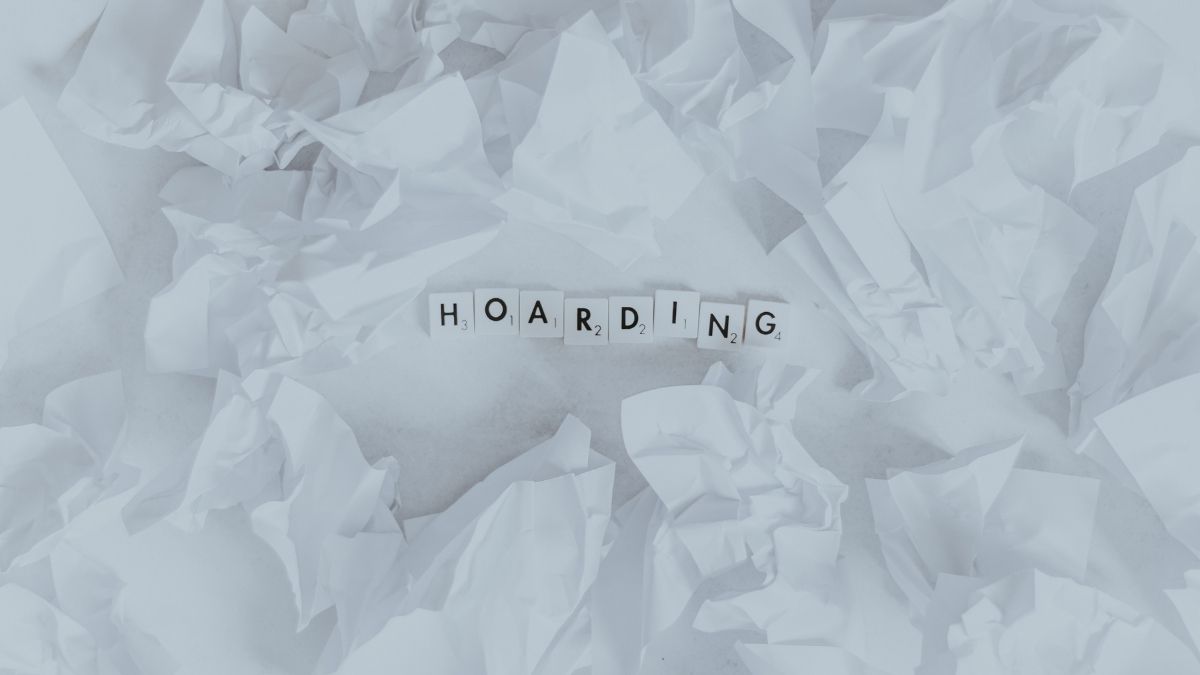Being a messy person or a collector does not mean you are a hoarder. Many of use purchase items that don’t actually need but still it’s not hoarding. However, if it is causing an inability to function and do day to day things such as cooking dinner and live safely in your home then it has become hoarding.
Having clutter and being a hoarder are totally different. Hoarders collect items which are often of little value such as newspapers or packets. Due to the emotional distress letting go of things causes, there would be piles and piles of things that would actually hinder physical access of rooms.
On the other hand, clutter would not make the home unsafe and rooms / cupboards are easily accessible. They find no issue in straightening up rooms or throwing away items.
Hoarding not only has a negative impact on ones life, but also on that of the relatives and neighbors. However, there are various reasons why people start hoarding. The reasons could be:
- A sense of fear if they throw away stuff;
- Most of the items feel that they have a lot of value;
- Assuming that might need an item some day, which goes beyond keeping an extra pack of wrapping paper.
A hoarder feels distress and pain when it comes to letting go of things. One might not be able to identify an exact reason why the hoarding started and hence why it is important to seek professional help.
Generally speaking, hoarders don’t seek help out of their free will. Most likely it is the family that would seek help. Embarrassing and yelling at the hoarders won’t change the situation. They have to come to realize of the harm and damage they are causing. Change can happen, but don’t expect to always see clear floors and countertops.
When it comes to dealing with hoarders, a home organiser would only be the last step because there is more to it. Therapy is required which is normally called Cognitive Behavioral Therapy (CBT). This therapy teaches people to see objects in a different light. CBT can help with:
- Make reasonable judgments as to whether to keep an item or not;
- Learn to make quick decisions;
- Practice letting go of things whilst dealing with intense emotions.
How can you help a hoarder?
When dealing with hoarder, one needs to be extra careful and here are some don’ts;
- Do not throw or remove anything without consent. Losing something will cause the hoarded emotional distress and can cause the reverse effect;
- Don’t expect that things will change overnight;
- Don’t encourage their behaviour by bringing new things or go shopping with them;
- Don’t clean up after them because it would refrain them from addressing their issues;
- Don’t expect perfection, just show love and support.
Here are some of the points of the Dos:
- Encourage them to seek professional help;
- Take time to learn about hoarding from reliable sources;
- Help with their belongings if they ask for help;
- Listen to them and don’t judge. Hoarding is a mental health issue and they need all the support and help.
There is nothing to be embarrassed or be ashamed of. Seek professional help.
Love
Strugglingmum xxx




